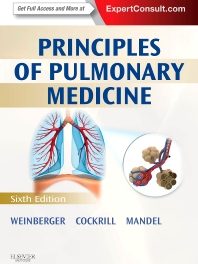 Authors: Markus Wolfensberger and Anthony Wrigley
Authors: Markus Wolfensberger and Anthony Wrigley
Publisher: Cambridge University Press- 249 pages
Book Review by: Sonu Chandiram
In the past several decades, public trust in physicians and other medical professionals has steadily declined, write the authors of this book, Markus Wolfensberger and Anthony Wrigley. And they prove it by showing evidence for this contention (see chart) as well as discuss several reasons for this decline.
At the same time, they write that the decline in public trust is also frustrating physicians, who work for and want the best outcomes for their patients, but ever tighter and mindless government regulations make their job more difficult.
These and other matters are discussed in this book by a surgeon-turned-philosopher, and an analytical philosopher working in medical ethics. They take a broad and deep approach to examining, inside out, the critical question of public trust in doctors, as shown in this outline:
- Part I – Introduction
- Introduction
- Empirical Evidence of the Decline of Trust
- Part II – The Nature of Trust
- A Critical Analysis of Existing Definitions of Trust in Medicine
- Proposing a New Type of Definition: The Pattern-Based Definition
- A Pattern-Based Definition of Trust
- Differentiating Trust from Related Concepts
- Adapting the Definition of Trust to Different Situations
- Part III – Justification of Trust
- Justification of Epistemic Trust
- Justification of Patients’ Trust in Physicians
- Part IV – Significance of Trust
- Instrumental Utility of Trust
- The Moral Value of Trust
- The Decline of Trust
- Reasons for the Decline of Trust
- Part VI – Perspectives
- Can We Restore Trust?
This book will be particularly useful not only to aspiring and established physicians, but also to those involved in medical ethics, medical law and liability, as well as philosophers and priests.
This is how the question of trust in medical professionals is looked at in this book, in an introductory paragraph: “Using an approach grounded in the methods of conceptual analysis found in analytical philosophy which also drives from approaches to medical diagnosis, the authors have conceived an internally coherent and comprehensive definition of trust to help elucidate the concept and explain its decline in the medical context.” This approach is in contrast to what the authors describe as ‘abstract philosophical discussions’ that are way too theoretical and impractical.
In short, this book straddles the gap between the practical and the theoretical, and that makes it highly useful to all concerned about the decline of trust in medical professionals.
3 polls on public trust of physicians, credit Cambridge U. Press
Authors:
Markus Wolfensberger, MD Is Emeritus Professor of Otorhinolaryngology at the University of Basel in Switzerland. Until his retirement in 2010, he was Head of the Department of Otorhinolaryngology, Head and Neck Surgery, as well as director of the Head and Neck Trauma Center at the University Hospital of Basel.
He also holds a doctorate in medical ethics and was, for many years, chair of the Clinical Ethics Advisory Board at the University Hospital of Basel. His particular interest, both as a surgeon and researcher, was in cancer of the head and neck. As a clinical ethicist one of his major interests was in preventing unnecessary and over-aggressive cancer treatment
Anthony Wrigley is Professor of Ethics at the Center for Professional Ethics (PEAK), School of Law in the United Kingdom. He is a philosopher with a special interest in issues in biomedical ethics. His particular area of interest is the analysis of key concepts in bioethics including vulnerability, hope, harm, personhood, mental illness, and consent for others, moral authority, and the nature of moral expertise. .
His many publications include The European Textbook on Ethics in Research (with Jonathan Hughes, et al, European Union, 2010), Ethics, Law, and Society, Volume V (edited with Nick Priaulx, Ashgate, 2013), and Loss, Dying and Bereavement in the Criminal Justice System (edited with Sue Read and Sotiros Santazoglou, Routledge, 2018).







